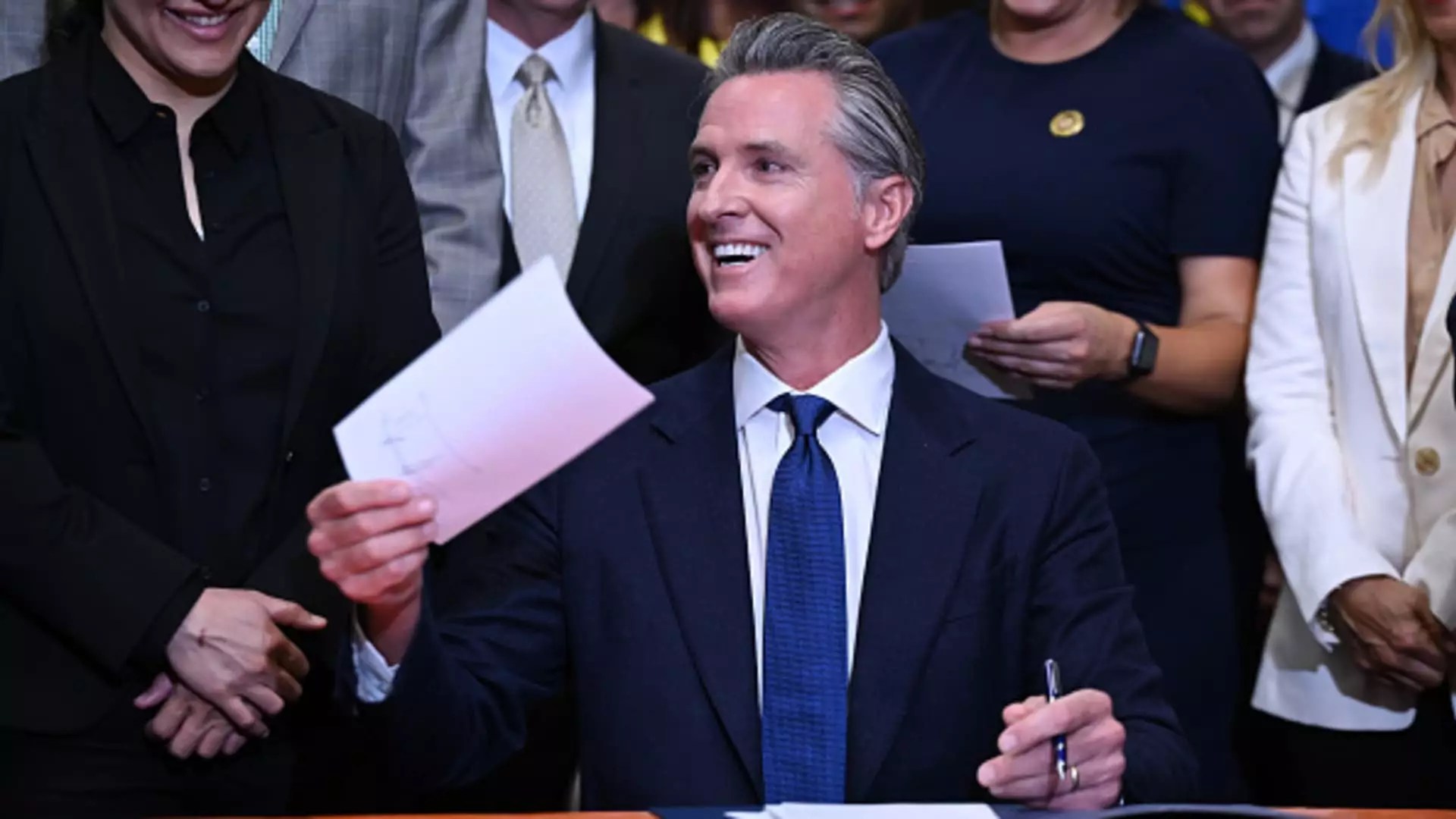California Governor Gavin Newsom recently signed 10 new bills into law designed to combat retail crime in the state. These laws target various aspects of retail crime, such as shoplifting, theft from vehicles, organized theft, and online marketplaces where stolen goods are resold. Retailers have raised concerns about the rising challenge of retail theft, affecting profits, customers, and staff, leading to the introduction of these new laws.
One of the bills in the package, SB 1416, focuses on establishing stricter penalties for middlemen involved in organized retail crime rings. This bill was introduced in response to a CNBC investigation that shed light on the widespread issue of organized retail crime in California. The new law aims to deter criminal activities by imposing additional prison time and fines for the sale, exchange, or return of stolen property. Before the law’s passage, those involved in such crime rings could face up to three years in prison, which critics argued was not a sufficient deterrent.
Organized retail crime rings, such as Michelle Mack’s “California Girls,” have been identified as significant contributors to the challenges faced by retailers in California. Mack, a prominent figure in organized retail crime, made millions reselling stolen goods on Amazon at reduced prices. Her arrest and subsequent conviction highlighted the financial losses suffered by retailers like Ulta and Sephora, who were victims of her illicit activities. Retailers have cited such crime rings as key factors affecting their profits, staffing issues, and overall shopping experience.
Rising Rates of Retail Crime in California
Data from the Public Policy Institute of California has shown a steady increase in commercial burglary and robbery rates in the state in recent years. Shoplifting, although still lower than pre-pandemic levels, has also been on the rise. The California Highway Patrol’s Organized Retail Crime Task Force has been actively involved in addressing these issues, making numerous arrests and recovering a significant amount of stolen goods.
Retailers have been calling for a national crackdown on organized retail crime, urging Congress to pass legislation that would make theft a federal felony. As the 2024 presidential election approaches, Democrats are under pressure to demonstrate a tough stance on crime in response to Republican criticisms of rising crime rates. However, there are concerns that the measures taken to combat retail crime may disproportionately impact marginalized groups.
Preventing Trafficking of Stolen Goods Online
Another bill, SB 1144, passed as part of the new package of laws, focuses on preventing the trafficking of stolen goods on online marketplaces like Amazon. This bill, introduced by state Sen. Nancy Skinner, aims to strengthen regulations for high-volume third-party sellers and facilitate the filing of civil charges against online platforms selling stolen goods. By updating compliance criteria and enforcement measures, the law seeks to curb the online resale of stolen items effectively.
The new laws signed by Governor Newsom represent a significant effort to address the growing threat of retail crime in California. By targeting various aspects of organized crime, online resale, and penalties for offenders, these laws aim to protect retailers, consumers, and communities from the impacts of theft and criminal activities. However, ongoing efforts will be needed to ensure effective enforcement and monitoring of these laws to combat retail crime effectively.


Leave a Reply